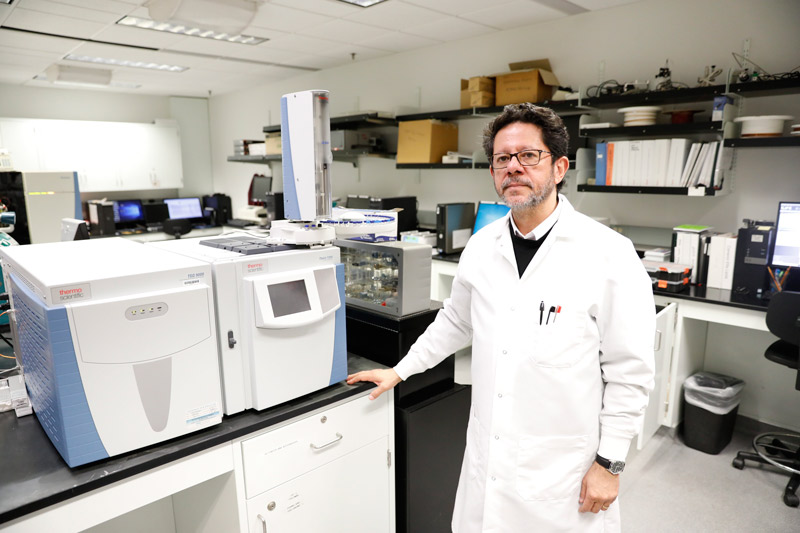UTEP Professor to Assist Study as Part of Quest Against Chagas Disease
Last Updated on January 06, 2020 at 12:00 AM
Originally published January 06, 2020
By Darlene Barajas
UTEP Communications
A professor from The University of Texas at El Paso will lend his expertise and record of significant advancements against Chagas disease to an $84,000 grant from the National Institutes of Health (NIH) awarded to the Research Development Foundation (Fundep) of the Federal University of Minas Gerais (UFMG) in Brazil.

The grant, which is known as an R01, is awarded though the NIH’s National Institute of Allergy and Infectious Diseases. Igor Almeida, Ph.D., professor of biological sciences, will lead the project at UTEP, working in collaboration with UFMG’s Walderez Dutra, Ph.D., the grant’s principal investigator. The project’s aim is to understand the molecular mechanism by which T cells cause intense inflammation in patients with chronic Chagas disease. Specifically, researchers hope to identify and analyze the antigens responsible for the activation of T cells that are major sources of cytokines causing strong inflammation in the heart or gastrointestinal tract of patients with chronic Chagas disease. Knowledge acquired from this effort will potentially enhance treatments.
“I am very glad for this award and collaboration with Professor Dutra in Brazil,” Almeida said. “I am very hopeful that this project will provide new insights into parasite-host interactions leading to inflammation, a pathological hallmark of Chagas disease, and establish the molecular basis for new therapeutic interventions.”
Chagas disease is caused by the parasite Trypanosoma cruzi, which is transmitted to animals and people by insect vectors known as kissing bugs, or by blood transfusion, organ transplantation, tainted foods and juices, or congenitally. The disease has been endemic in Latin America, already affecting 6 million to 8 million people, but it is rapidly spreading throughout the United States, Europe and other nonendemic regions as a result of globalization. Yet, there is no clinical vaccine, although there have been several experimental efforts throughout the years.
Almeida and his team are concurrently initiating an NIH-funded Phase 2 clinical trial in Bolivia to develop new chemotherapies and biomarkers for early assessment of therapeutic outcomes in Chagas disease.